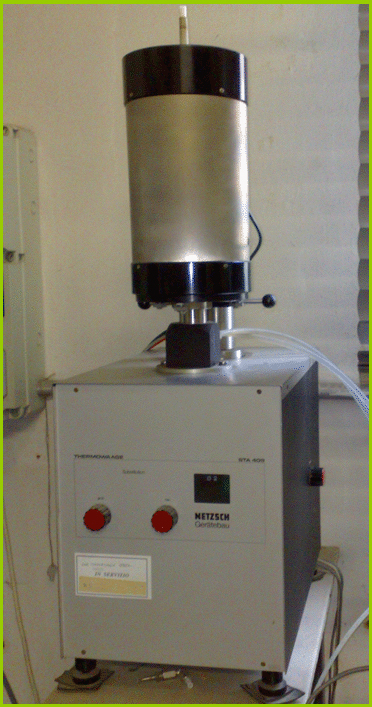Differential thermal analysis (DTA) and thermogravimetric analysis (TGA)
The study of the chemical reactions vs temperature variations is of basic importance for the study of the firing of the products. The thermogravimetric analysis (TGA) records the weight changes of a sample as a function of temperature and time. The differential thermal analysis (DTA) measures simultaneously the temperature of the specimen and that of the reference sample, as a function of the set thermal cycle. Therefore, it provides information on the endothermic and exothermic processes occurring with temperature changes.
TGA and DTA allow to obtain information on the transformation processes of raw materials, for example:
- evaporation of the water in the clays (TGA and DTA)
- oxidation of organic substances and sulphur (TGA and DTA)
- decomposition of substances, e.g. carbonates (TGA and DTA)
- phase transformation, e.g. α→β quartz (DTA)
- crystallisation and/or formation of new phases (DTA)
- steadiness of a material at a temperature, in time (TGA).
Technical features of the instrument
The instrument mod. STA 409, Netzsch GmbH (D), allows the simultaneous application of two measuring methods – TGA and DTA – on the same sample. It is possible make even a single analysis (TGA or DTA).
- maximum temperature: 1250 °C (only DTA up to 1500 °C)
- maximum heating rate: 20 °C.
Contact person:
Dr. Giovanni Ridolfi – e-mail ridolfi@centroceramico.it
Mobile: +39 345 9317030




